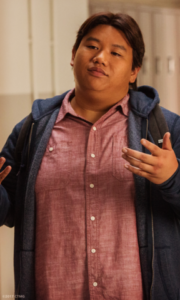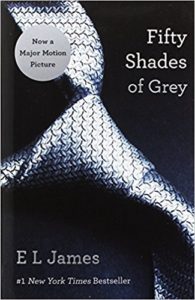Should #MeToo Apply to Books, Movies, and Video Games?
If you’ve been on Facebook or Twitter in the last couple weeks, you’ve probably noticed it.
The #MeToo campaign that swept through social media channels, calling attention to sexual harassment and abuse. My goal isn’t to wade into a debate about the effectiveness or necessity of viral campaigns, or to discuss the hows and whys and pros and cons of #MeToo.
Rather, I think there’s more to the story. And that’s not at all to trivialize or downplay people’s experiences. The problem is real, as the flood of #MeToo responses has shown. But it’s also real in unlooked-for places.
Books, video games, movies.
Themes in stories often reflect trends in the real world. And it can be argued that entertainment plays a central role in shaping culture. Which is why we shouldn’t ignore the #MeToo realities lurking in stories all around us.
The Deeper Issue Behind #MeToo
The goal, as I understand it, of the #MeToo trend is twofold: to raise awareness and embolden people to speak out. It gives people a voice and sheds light into the shadowy corner of a sensitive but important issue.
Perhaps we should look deeper. To the pages of stories, the scenes of movies, the virtual reality world of video games.

Ned Leeds – image via marvelcinematicuniverse.wikia.com
For there we find the same issue, cast in a different light but just as potent. Not because we find victims at every turn (though certainly in the realm of Hollywood that can and does happen), but because entertainment, like our mothers, holds influence.
When Spider-Man: Homecoming released in July, I dutifully headed to the theater. The movie, definitely aimed at a teen audience, contains a rather flippant porn joke, one that caused a loud ripple of laughter to course through the theater.
The problem isn’t so much the inclusion of crude humor as the desensitized response. A response born of an entertainment culture saturated by sexual exploitation.
Movies: Real Abuse
The easiest target to identify is Hollywood, and not just the Harvey Weinsteins and Bill Cosbys, the real-life perpetrators. The root is buried more deeply, in that sexual exploitation has become integral to filmmaking. It’s not something that merely happens out in the world, away from the film set.

Daenerys Targaryen – image via gameofthrones.wikia.com
Nudity, sex scenes—movies have them by the dozen. Plenty of opinions and arguments exist around the topic, from both sides. I don’t have time to delve into the debate, though I’d suggest checking out Cap Stewart’s site. He’s written extensively on the Hollywood sex trend.
However, what are we to make of “abuse” in Hollywood? Does it really have any bearing on #MeToo? Could we consider it exploitation when the script reaches the bedroom scene?
It’s undeniable that such demands have a profound (and not in a positive way) effect. Not on everyone, but that’s not the point. If even one actor or actress felt unduly exposed, it should be enough to call foul.
When Jennifer Lawrence had to film the sex scene for Passengers, it didn’t come easily:
I got really, really drunk. But then that led to more anxiety when I got home because I was like, “What have I done? I don’t know.” And he was married. And it was going to be my first time kissing a married man, and guilt is the worst feeling in your stomach. And I knew it was my job, but I couldn’t tell my stomach that. So I called my mom, and I was like, “Will you just tell me it’s OK?” It was just very vulnerable. And you don’t know what’s too much. You want to do it real, you want everything to be real, but then … That was the most vulnerable I’ve ever been.
It doesn’t stop there. Other actresses have expressed similar qualms about the expectations that come with the territory.
Hollywood sparked the #MeToo blaze, but perhaps we should take it beyond the brass and tacks of everyday life and into the ubiquitous world of storytelling. At what cost—emotional, psychological, physical—is the industry churning out films filled with sex and nudity?
Video Games: All the Visuals
 Like movies, video games contain an inherently visual aspect. Fortunately, no real people are involved. But that doesn’t lessen the reality of an industry once again saturated by tantalizing visuals.
Like movies, video games contain an inherently visual aspect. Fortunately, no real people are involved. But that doesn’t lessen the reality of an industry once again saturated by tantalizing visuals.
It’s become something of a stereotype: the hot warrior chick whose armor (can we even call it that?) would stop nothing beyond an attack of chopsticks. Which basically means it’s useless for anything but drawing the eye. And that’s the goal.
Even if abuse, exploitation, or harassment happening in video games is nothing more than simulation, it contributes to the problem by conditioning gamers to view scanty covering and risqué exploits as fine and natural. It’s almost an expected default.
And since entertainment holds such power, that expectation can roll over into the real world. Suddenly there’s a growing mindset that this stereotype is normal, acceptable. Without problems or any hint of exploitation.
To paraphrase Digory in The Last Battle, “What do they teach them with entertainment these days?”
Unfortunately, more than we realize.
Books: A Vicarious Experience
 Books are the least likely culprit, since they don’t contain any pictures. But that doesn’t mean they’re squeaky clean. Far from it. Plenty of books contain sexual content, abusive characters and victims, the list goes on.
Books are the least likely culprit, since they don’t contain any pictures. But that doesn’t mean they’re squeaky clean. Far from it. Plenty of books contain sexual content, abusive characters and victims, the list goes on.
Fifty Shades of Grey, anyone?
We all know the power of words, and that reading something can make it burst to life almost as clearly as if we were actually seeing it. Even if it’s “not real,” readers are still participating vicariously.
Now, I’m not saying we should turn a blind eye to reality and create stories that blithely gallivant into escapism. They need to be raw and real, boldly dealing with the harsh truths surrounding us. But always with a purpose.
In one of my yet-to-be-published stories, one of the main characters suffers from abuse—though hers is more physical and emotional, not sexual. Yet the darkness plays a key part in her character arc, one that ultimately leads to redemption. It’s not that stories include abusive situations, it’s what the author uses them for.
To titillate, tempt, and seduce? Or to throw back the curtain and let the light pour into the shadows?
The World of #MeToo
Constantly surrounded as we are by entertainment that shows, even encourages, sexual exploitation, it’s no wonder we live in a society where #MeToo is a sad reality.
That’s the takeaway here. Beyond the abuse and harassment that happens every day to actual humans, we need to be aware of what’s taking place in the entertainment we consume. And more importantly, how that shapes people’s outlook on the world.
For some, entertainment is merely that. The content is a non-issue. The problem is that stories with such content support and perpetuate an “it’s okay” attitude.
And if it’s okay in fiction, it becomes okay in reality.
How (or should) we view books, movies, and video games in light of the #MeToo trend? How much does the content in entertainment add to the problem?






































Agreed. We can’t celebrate Hugh Hefner and how he broke down morals or how Game of Thrones is “so entertaining” and then complain about the effect that porn has on our culture.
Well said, Zac. As long as the media shows people that harassment and assault are normal, it may be impossible to convince offenders otherwise.
Well said. So many movies throw in gratuitous sex scenes, jokes, or crude language. We watched the Back to the Future movies with the kids. The number of times they took God or Christ’s name in vain was frustrating especially for movies that are otherwise pretty family friendly (and nostalgic). Now that I’m a mom, I’m a lot more sensitive to content. It bothers my kids, and I want them to not be desensitized!
I don’t think it’s as easy as censoring entertainment. Without understanding the mechanics of abuse, it doesn’t really solve anything to not distinguish between “mere” sexual content and sexual exploitation.
I think it bears repeating in this context that sex in of itself is not bad. Sex is not the enemy, sex is not the actual problem. Jerkwads who use other people to gratify themselves without regard to those people are the problem.
To me there’s also the question of the specifics of the content in question. I don’t think it’s good to go full on graphic in a story, but there are times when it can be good to show how abuse affects a character, as well a how they can get out of that situation. So I guess in stories we have to see if the abuse is there just to entertain people/glorify abuse, or if it is there to raise awareness and maybe give people the courage to leave an abusive situation.
After researching psychopathy and narcissistic personality disorder, I actually have a few characters now who are victims of people with those disorders and have to figure out how to overcome the mental abuse and leave. I think one thing that helps stories like that is showing it from the perspective of the victim so that people realize exactly how horrible abuse is.
Am I the only one here who’s going to point out that quote is from The Lion, The Witch, and the Wardrobe?